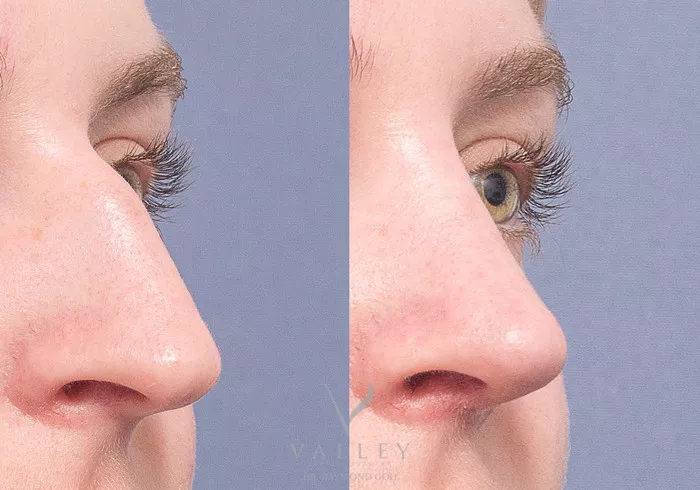Undergoing a rhinoplasty, commonly known as a nose job, is a significant decision that can bring about transformative changes to your appearance and boost your self-confidence. To ensure the best possible outcome and a smooth recovery, it is crucial to follow proper post-operative care guidelines. In this article, we will discuss what not to do after a nose job, highlighting essential guidelines that will help you achieve optimal results.
1. Neglecting the Post-Operative Instructions
After your rhinoplasty surgery, your plastic surgeon will provide you with detailed post-operative instructions. It is imperative to carefully read and understand these instructions and follow them diligently. These guidelines are tailored to your specific case and will help promote healing and minimize the risk of complications. Ignoring or neglecting these instructions can hinder your recovery and compromise the final results.
2. Engaging in Strenuous Activities
During the initial stages of recovery, it is crucial to avoid any strenuous activities that can strain your body or put pressure on your nose. Activities such as heavy lifting, vigorous exercise, and contact sports should be avoided for several weeks following your surgery. Excessive physical exertion can lead to increased swelling, bleeding, and potential damage to the delicate nasal structures. It is important to give your body ample time to heal and gradually reintroduce physical activities as directed by your surgeon.
3. Touching or Applying Pressure to the Nose
After your nose job, it is essential to resist the temptation to touch or apply pressure to your nose, even if it feels itchy or uncomfortable. Touching or pressing on the nose can disrupt the healing process and potentially cause complications. Avoid picking your nose or inserting any objects inside, as this can lead to infection or damage to the nasal tissues. It is crucial to be gentle and allow your nose to heal naturally.
4. Sleeping on Your Stomach or Side
During the early stages of recovery, it is advisable to sleep on your back with your head elevated. Sleeping on your stomach or side can exert pressure on your nose, leading to increased swelling and discomfort. It is important to maintain proper alignment and support for your nose while sleeping to aid in the healing process. Follow your surgeon’s recommendations regarding sleep position and use extra pillows or cushions to ensure proper elevation.
5. Exposing Your Nose to Sunlight without Protection
Excessive sun exposure can have detrimental effects on the healing process and the appearance of your nose after surgery. UV rays can cause hyperpigmentation, delayed healing, and potential scarring. It is essential to protect your nose from direct sunlight by wearing a wide-brimmed hat and applying sunscreen with a high SPF. Be diligent in keeping your nose shielded from the sun, especially during the first few months post-surgery when your skin may be more sensitive.
6. Smoking or Using Nicotine Products
Smoking and nicotine products can severely impede the healing process after a nose job. Nicotine restricts blood vessels, impairing circulation and reducing oxygen supply to the tissues. This can result in delayed healing, increased risk of infection, and compromised results. It is crucial to refrain from smoking or using nicotine products for at least several weeks before and after your surgery to ensure optimal healing and minimize the risk of complications.
7. Discontinuing Medications without Consulting Your Surgeon
During your recovery period, your surgeon may prescribe medications to manage pain, prevent infection, and aid in healing. It is essential to take these medications as directed and not discontinue them without consulting your surgeon. If you experience any adverse effects or have concerns about the prescribed medications, reach out to your surgeon for guidance. It is important to communicate openly with your healthcare team to ensure a safe and comfortable recovery.
8. Neglecting Proper Hygiene
Maintaining proper hygiene is crucial during the recovery period to minimize the risk of infection. Follow your surgeon’s instructions regarding wound care, cleansing the incision site, and keeping your nose clean. Avoid submerging your nose in water, such as in pools, hot tubs, or baths, until you receive clearance from your surgeon. It is important to be diligent in following hygiene practices to promote healing and reduce the risk of complications.
9. Skipping Follow-Up Appointments
Regular follow-up appointments with your plastic surgeon are vital to monitor your progress and address any concerns or questions you may have. Skipping these appointments can hinder your recovery and prevent timely intervention if any issues arise. Attend all scheduled follow-up visits and communicate openly with your surgeon about your recovery process. These appointments provide an opportunity for your surgeon to assess your healing, remove any sutures or splints, and guide you towards the best possible outcome.
Conclusion
Proper post-operative care is crucial for a successful recovery after a nose job. By avoiding the activities and behaviors outlined above, you can promote optimal healing, minimize the risk of complications, and enhance the final results of your surgery. It is essential to follow the specific instructions provided by your plastic surgeon, maintain open communication, and be patient during the recovery process. Remember, each individual’s recovery may vary, and it is important to consult with your surgeon if you have any concerns or questions along the way. With diligent care and adherence to the guidelines, you can achieve the desired results and enjoy the benefits of your rhinoplasty for years to come.

